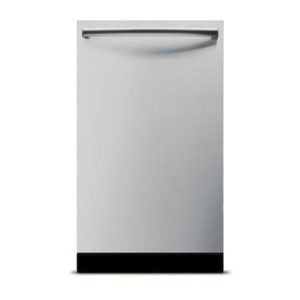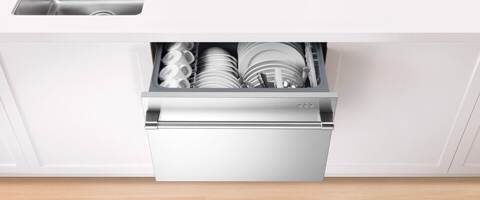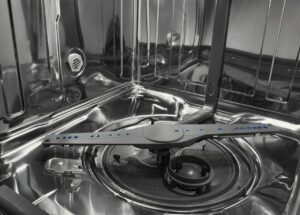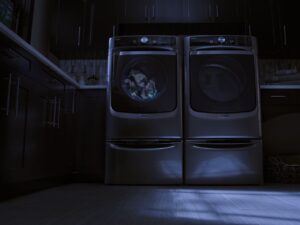3 Water-Saving Dishwashing Tips

Save water when washing dishes
We’ve previously written about ways to save water in your home during this drought. Click on the link below:
Now, we’d like to specifically call your attention to saving water with your dishwasher. Here are three simple ways to save water when washing dishes.
1. Use your dishwasher.
Research has shown a surprising number of households who have dishwashers do not use them. Sometimes residents believe that by hand washing they’ll get their dishes cleaner, that it’s more sanitary, and they’ll use less water. Of course, none of this is true. Hand washing dishes uses far more water, is likely to not do as good a job getting dishes clean, and is definitely less sanitary than using a dishwasher.
2. Don’t pre-wash dishes.
For decades dishwasher manufacturers have been imploring homemakers to forego pre-washing dishes before they put them in the dishwasher. There are two important reasons that we should not pre-wash dishes.
First, it’s a huge waste of water. You’re bound to use as much water pre-washing the dishes as your dishwasher uses for the entire cycle. Also, pre-washing your dishes can actually cause your dishes to come out of the dishwasher dirty, and in some cases it may even damage your dishes (especially glassware). Dishwasher detergent removes dirt molecules from the dishes and suspends them in the water where they get flushed out of the dishwasher. When the dishes are pre-washed, the dishwasher is unable to capture dirt molecules and the detergent molecules instead repeatedly rub against the dishes eventually causing “etching”. Glasses especially will develop a foggy blueish haze that cannot be removed. So don’t pre-wash your dishes.
3. Wash full loads.
Some newer dishwashers have cycles for washing just one-rack of dishes, but the general rule is that washing full loads will save both water and detergent.
These three common-sense tips will get you headed in the right direction, but it would be a mistake not to point out that if you have a dishwasher that is more than 20 years old, you should really consider replacing it. Not only will a newer dishwasher run quieter and clean your dishes far better, the water and energy that you save will help pay for its cost. Even if your dishwasher is 15 years old, you might want to consider a new one. At 10 years old or more, if your dishwasher fails, you should be reluctant to spend much on repairs, especially if it’s a basic model dishwasher.
Of course, for advice on purchasing a water and energy-saving dishwasher or other appliances and plumbing fixtures call or visit the pros at Universal Appliance and Kitchen Center.
- Choosing Between a Plastic and a Stainless Steel Dishwasher Tub
- Steam Dryers: Efficient, Gentle, and Wrinkle-Free Laundry Solution
- Benefits of a Smart Washing Machine
- Beverage Stations: Elevating Your Kitchen with the Latest Trend
- New Ways to Design Your Kitchen in 2024
- Should You Choose a Column Refrigerator?
- The Benefits of an Outdoor Pizza Oven
- Should You Choose a Freestanding or Slide-In Range?
- Understanding Microwave Wattage
- Standard or Pro Ranges: Which One is Best for Your Home?









